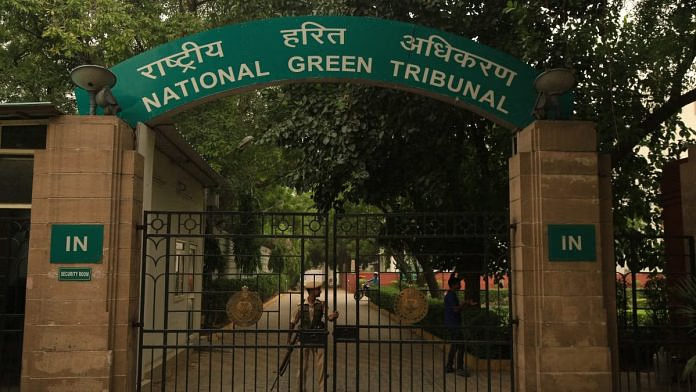NGT Forms Joint Committee to Probe Air Pollution at ACC Cement Plant in Himachal Pradesh
The National Green Tribunal (NGT) has set up a joint committee to investigate allegations of air pollution caused by the ACC cement plant located in Barmana village in Himachal Pradesh’s Bilaspur district. This move comes after a complaint was lodged by a local resident, Kashmir Thakur, who has accused the Adani Group-owned cement factory of causing extensive air pollution in the area.
The NGT’s decision to form a joint committee highlights the growing concerns over the environmental impact of cement factories, which are often associated with dust emissions and other pollutants. The panel has been tasked with inspecting the plant and determining whether ACC Cement has taken adequate measures to prevent pollution or whether violations of environmental norms have occurred. The complaint, filed by Thakur, claims that the factory has been releasing substantial amounts of dust into the air during the cement manufacturing process. According to Thakur, this dust settles on the pathways, concrete roads, and residential buildings in the vicinity of the plant, leading to health hazards for the local population. The petition also highlights that the factory’s dust separation system is either malfunctioning or improperly installed, which has prevented the company from effectively controlling fugitive emissions. This type of pollution has become a serious concern for local residents, as dust particles can have detrimental effects on respiratory health, particularly in areas near industrial zones. The dust, which is a byproduct of cement production, often contains harmful particles such as silica, which can contribute to conditions like asthma and other lung diseases. In response to the petition, the NGT, led by Justice Sudhir Agarwal, decided that before taking further action, it was necessary to get a factual report on the matter.
The tribunal ordered the formation of a joint committee comprising officials from the Himachal Pradesh State Pollution Control Board (HPSPCB), the Central Pollution Control Board (CPCB), and the Bilaspur district administration. The CPCB has been designated as the nodal agency to coordinate and ensure compliance with the NGT’s directive. The committee will visit the ACC cement plant, conduct an inspection, and submit a detailed report on whether the company has adopted proper pollution control measures. The panel will also investigate whether the plant is adhering to environmental regulations and whether any violations have occurred. This is not the first time that ACC Cement has faced scrutiny for environmental violations. In 2015, the NGT imposed a hefty fine of Rs 50 lakh on the cement company for causing air pollution and posing a health risk to the residents of Barmana. The penalty was aimed at compensating for the environmental damage caused by the plant and ensuring that similar pollution incidents would not happen in the future. The fine was also intended to promote the rehabilitation of the affected areas and improve the air quality.
However, despite these measures, complaints regarding dust emissions and air pollution have persisted, leading to the current investigation. ACC Cement, which has been a leading cement manufacturer in India for decades, was acquired by the Adani Group in May 2022, along with Ambuja Cements, in a major deal with the Swiss Holcim Group. Since the acquisition, the Adani Group has been making efforts to integrate the companies into its portfolio, but issues like environmental pollution at the ACC cement plant still remain a concern for the local community and environmental advocates. As the joint committee prepares to inspect the ACC cement plant, residents of Barmana and environmental groups are hopeful that the findings will lead to stricter regulatory actions and improvements in the cement plant’s pollution control systems. The investigation is a critical step in holding companies accountable for their environmental impact and ensuring that industrial growth does not come at the expense of public health and the environment. The NGT’s decision to probe the matter further underscores the importance of maintaining a balance between industrial development and environmental sustainability. The outcome of this investigation could set a precedent for how similar cases are handled in the future, especially as India continues to grapple with pollution challenges in its rapidly growing industrial sectors.







